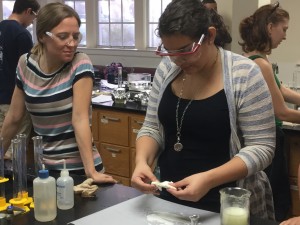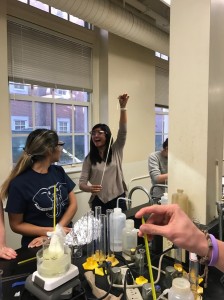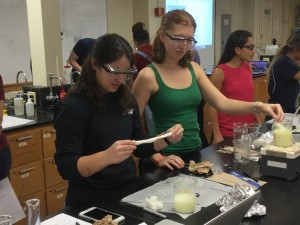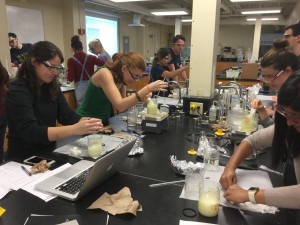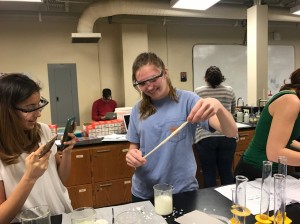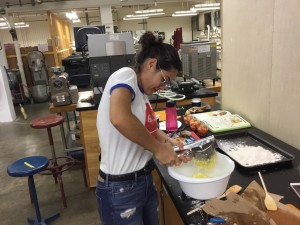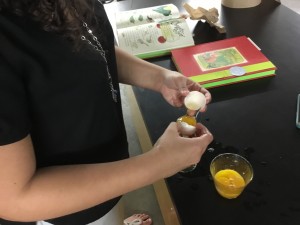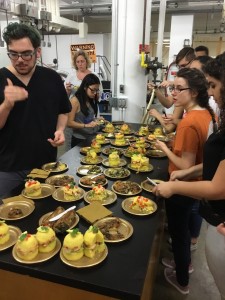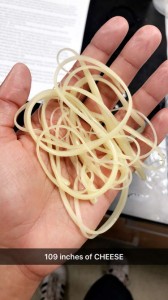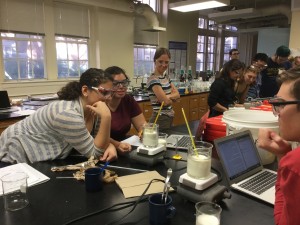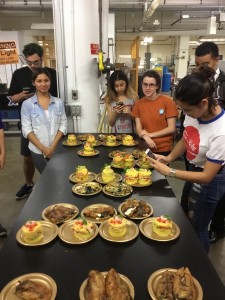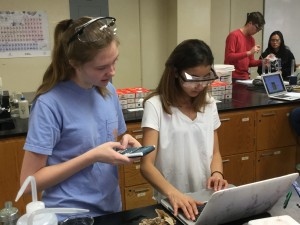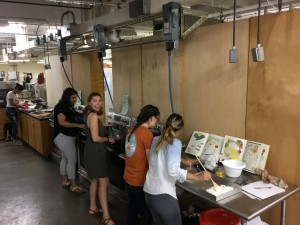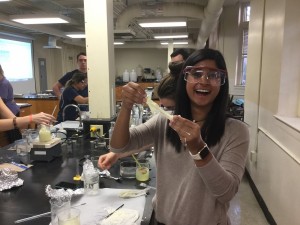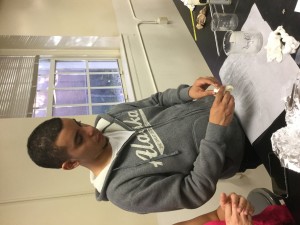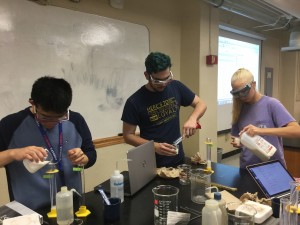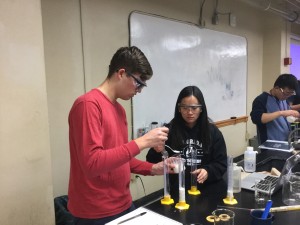Chemistry in the Cocina Latina
This is a basic course that combines the science of chemistry with the humanistic aspects of the Spanish language and Hispanic cultures and histories. We explore Hispanic cultures and language through the foods and recipes that define them, and explore the science of those foods by studying the chemical reactions inherent in all cooking. As part of the International Scholars Program, this course complies with the QEP Student Learning Outcomes identified by the UF International Center. As such, the course readings, activities and discussions will help students achieve the following:- Students identify, describe, and explain global and intercultural conditions and interdependencies. Students will learn about various countries/regions in Latin America, and will understand cultural, historical, sociopolitical and geographical aspects of their culture. [content]
- Students analyze and interpret global and intercultural issues. Students will need to analyze and make sense of the various cultural, historical, sociopolitical and geographical factors that work together to form the Latin American countries/regions discussed. They will also explore the connections between food and culture, and food and science, and how the aforementioned factors are relevant to those connections. [critical thinking]
- Students communicate effectively with members of other cultures. Although no proficiency in Spanish is required, students will learn relevant vocabulary items and will come to appreciate the value of knowing another language. [communication]
Course Available in CANVAS



